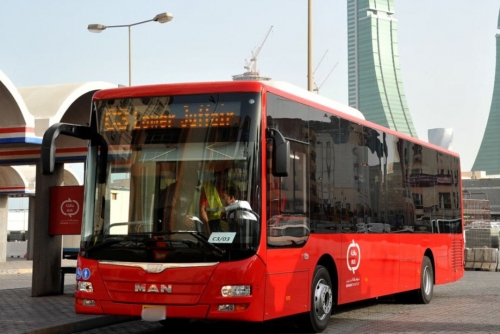Bahrain’s public transport system has seen a significant increase in passengers in September 2024, with a total of 945,199 individuals utilizing the service. Despite this rise, the average bus ridership has faced challenges, as the figures dropped from 32,882 in March 2023 to 23,477 in March 2024. Since its launch in February 2015, the total number of public transport users has exceeded 98,036,021, with an average daily ridership of 31,507. The Ministry of Transportation and Telecommunications reported that 2,962 operational cards were issued and renewed in September 2024, along with 34 renewed licenses and five new ones, with 24 inspection campaigns carried out during the month.
The Bahrain Public Transport Company operates a fleet of 140 buses covering 26 routes and over 600 stations daily. The fleet is designed to cater to all passengers, including those with special needs, with features such as low-floor buses, driver-controlled platforms, priority seating for women, families, the elderly, and wheelchair users, free Wi-Fi, information display screens, surveillance cameras, and wheelchair facilities. The public transport services are operated by a private company under an investment franchise, with support from the government to serve a diverse range of workers and residents. Regular studies are conducted on bus routes to assess service quality and review requests from users, municipal councils, and other stakeholders.
Plans are underway to begin construction on Bahrain’s first Metro project in the coming years, with the Ministry collaborating with the Bahrain Public Transport Company to conduct thorough periodic studies on bus routes. The public transport operating contract is set to expire next year, with the Ministry indicating an expansion of public transport services, increasing the number of routes and buses dedicated to the system. Currently, there are 140 public transport buses, with 114 in active operation, servicing 583 stations and making 726 trips daily, covering 80% of populated areas, with an average daily network usage of 32,000 people.
The public transport company faces obstacles in meeting its goals, with traffic congestion posing a considerable challenge. The decline in bus speeds from 23 km/h in 2013 to 18 km/h in 2019 is mainly attributed to traffic congestion, with 61% of the seats lost on public buses between 2019 and 2024 due to this issue. Despite efforts to increase ridership, the daily average has settled at 28,000 passengers, falling short of the initial target of 51,000 daily passengers in the first year, with a 5% increase in subsequent years. The Ministry compensates the company with BD 9 million annually, minus revenues collected from operations, which averaged BD 2 million per year from 2019 to 2022.











